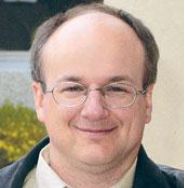
Miscarriages of justice, and the urgent need for justice systems to address them, are an international phenomenon, according to visiting Canadian academic Professor Kent Roach.
Professor Roach should know: he headed research for the 2008 Goudge inquiry into paediatric forensic pathology in Ontario, which was a response to 12 wrongful convictions stemming from forensic misdiagnosis of the cause of infant deaths.
Professor Roach, of Toronto University, will present a public lecture, Lessons to be learned from Canada’s Judicial Inquiries on Miscarriages of Justice: Developing and enforcing standards, at Flinders University Victoria Square at 6pm on Thursday, November 6.
He will also be a speaker at the Flinders Centre for Crime Policy and Research symposium on Miscarriages of Justice on November 7 and 8. National and international speakers at the symposium will include legal and forensic experts, scholars and academics.
South Australia has recently introduced a new right of appeal, partly as a result of advocacy by Flinders University law academic Ms Bibi Sangha and Dr Robert Moles of Networked Knowledge. The new legislation has led to a further appeal in the case of Henry Keogh, whose conviction for murder was strongly based on forensic opinion that is now disputed by experts.
Professor Roach said the ability for legal systems to review convictions based on dubious or botched forensic evidence was vital.
He said most prominent cases of miscarriages of justice concern people convicted on the basis of faulty evidence presented at trials, but that in Canada several of the parents wrongly accused of killing their children had pleaded guilty to lesser offences to avoid life sentences for murder.
“If you accept that some people make rational decisions to plead guilty to crimes they didn’t commit, the iceberg of potential wrongful convictions gets even bigger,” Professor Roach said.
While Canada has not introduced an independent criminal review board as recommended by the Goudge commission, the petition process for judicial review has been strengthened and made more transparent.
Professor Roach said with its various State jurisdictions, Australia offers several “laboratories” for the introduction and assessment of criminal review processes.

